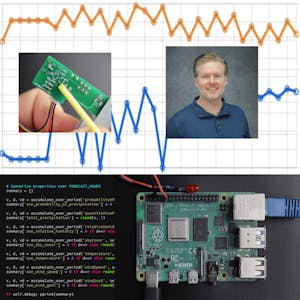This course on integrating sensors with your Raspberry Pi provides a comprehensive understanding of sensor design, calibration, interface circuits, and signal processing. It is part of a Coursera Specialization and is suitable for beginners with an interest in building sensor-based projects.
This course is designed to equip learners with the knowledge and skills necessary to work with sensors and post-process data on the Raspberry Pi or other platforms. By the end of the course, participants will be able to apply these concepts to their own sensor projects, enabling them to build highly customized sensors for various applications.
Certificate Available ✔
Get Started / More Info
This course consists of four modules that cover sensor design, calibration methods, interface circuits, and introduction to signal processing. Gain in-depth knowledge to integrate sensors with your Raspberry Pi.
Module 1: Designing Sensors
Module 2: Calibration Methods
Module 3: Interface Circuits
Module 4: Introduction to Signal Processing
This course introduces the design and integration of sensors and motors into embedded systems for consumer and industrial products.
Incrementar - Parte 2 y Controlar: A comprehensive exploration of Lean Six Sigma's DMAIC methodology, focusing on improvement and control stages through quantitative...
Steel, a versatile and essential material, is explored in Ferrous Technology I, delving into its properties, production processes, and applications in a comprehensive...
Linear Circuits 2: AC Analysis provides a comprehensive understanding of analyzing circuits with alternating current sources, covering resistors, capacitors, and...